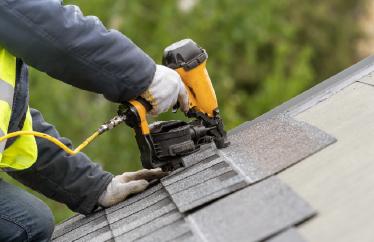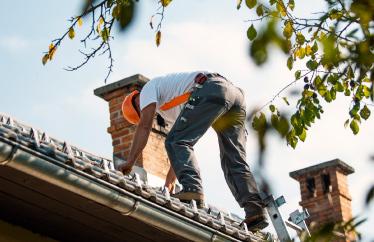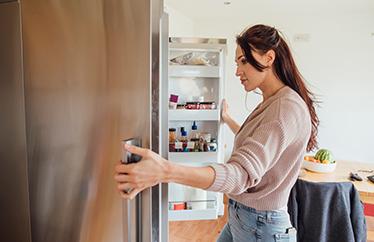Babysitter Checklist: How to Protect Your Family and Home

For new parents, new experiences like homeownership, childcare and getting back into your normal routine as your child grows can be overwhelming.
When everything is so fresh and exciting, the concept of leaving your children at home at all might seem like a non-option. But after a bit, you might start itching to get back into appointments, social events, date nights or exercise. In that case, it might be time to think about hiring a babysitter.
Hiring a babysitter for the first time is all about preparation. Setting your sitter up for success with all the resources, contacts and information they need can help them feel ready to watch your home and can allow you to enjoy your time out of the house without worrying.
Here at Hippo, we’re all about making sure your family is prepared and protected. To help parents get hold of everything they need before getting back into the real world, we’ve prepared a babysitter checklist and guide.

How to prepare for a babysitter
Preparing for a babysitter, especially in the early days, can be stressful. But once you get into the swing of things, you’ll learn to do it quickly and easily.
Before the babysitter arrives, you should childproof your home by cleaning it and moving away clutter that could potentially harm your children. Though you may know to look out for things like the cabinet that holds cleaning supplies or the glass vase on top of the dining table, your babysitter might not.
You may also want to hide any personal items or things that could distract a babysitter like expensive jewelry, firearms or alcohol. These things could be liabilities that may increase the likelihood of accidents while you’re gone, so you’ll want to make sure to reduce the risk by storing them away safely.
But while you tuck away potential distractions or dangers, make sure essential things like safety items, food, toys and hygiene necessities are easily accessible.
A few action items to take care of before the babysitter arrives:
- Clean your house to reduce clutter
- Hide any valuables, firearms and alcohol
- Stock the pantry with snacks
- Write down critical information in a notepad or folder for your sitter
- If your kids are older, talk to them about the babysitter coming over
When your babysitter arrives, give them a house tour that will include the locations of emergency exits, where to find contact information, where each child sleeps and any restricted areas. Also, show them how to use any child or baby-proofing technology you have.
What to leave for the babysitter
Leaving your babysitter with all the information they’ll need to contact you and know the run of your household will increase your peace of mind and your babysitter’s comfort. Leave important information written on a notepad or placed in a folder that you leave on your kitchen counter or stuck to your refrigerator. Assembling the information all in one place will also make it easy for you to update the next time you need a sitter.
Outing Details
It’s crucial to let your babysitter know where you’ll be, how long you’ll be gone and how they can contact you. This information can help your sitter feel confident in case of emergencies while giving them a basic expectation of what they’re in for.
Use a notepad or a printable sheet like the one we’ve provided to give your sitter the basic details of the evening. Include any contact numbers they’ll need, your expected return time and any basic house information, like the WiFi password and alarm codes for door or window alarms.

Contact information
More than just your contact information, it’s a best practice to arm your babysitter with the instructions they’ll need to contact others in case they can’t reach you. Give them a neighbor’s contact information, grandparents or other relatives, emergency services or trusted friends to give them some options.
You can write those contact details on a piece of paper or use a printable address book like the one we’ve provided. You may also want to make sure your babysitter stores your phone number and a few emergency contacts into their phone just in case they can’t access the address book provided when they need to.

Food and drink guides
Children’s feeding time can be particular and sensitive. To help your babysitter understand your family’s routine, provide them some guidance about house rules around eating — especially if they’re going to be babysitting during mealtime.
Make sure your babysitter knows about what snacks are and are not prohibited, any food allergies and what foods are on the menu for meals. In the event your child is a picky eater, you might also want to give them some approved backup options in case your child doesn’t want what was originally planned.
You may also want to include any mealtime rules: Are screens like phones or TV allowed during dinner? Do children have to eat at the table? Are children expected to do the dishes?
House rules
House rules keep your family safe. Just because the parent is out of the house, you’ll want to make sure these rules are still getting enforced. Let your babysitter know of any big rules like restricted areas of the house, limits on TV or video game time, bedtimes, curfews for playing outside, etc.
While some accidents will be covered by homeowners insurance, others won’t. A typical homeowners insurance policy will only cover your primary household members, and personal liability will cover injury to guests who decide to sue you. While infrequent babysitters who don’t work consistent hours may be considered guests, longer-term or consistent babysitters, nannies or au pairs are not considered guests and aren’t covered.
While an accident will hopefully never happen while a babysitter is on your property, you can make it less likely by schooling them on the house rules.
Pet information
If you’re one of the 90.5 million American families that own a pet, you’ll also want to make sure your family’s best friend is cared for while you’re out of the house. You should provide care information like feeding schedules, sleep instructions and veterinary contact information in case an accident occurs.
To take an extra step, you could provide some information on what to do or who to call if your pet escapes the house, gets injured, bites someone, etc.
Emergency Preparation
An unplanned emergency or accident can be scary for anyone — but especially those who are unprepared to handle it. Being prepared for emergencies is always a good idea. Leave your babysitter with all the information they’ll need to handle an emergency like a flood, house fire or other events.
Your family safety plan should include exits to use if an emergency occurs, who to contact, where to go and what to do. A printable emergency exit and safety plan — like the one we’ve provided here — can help streamline this information into one accessible document.

Babysitter policies
Every family is different, but parents who are new to hiring babysitters may have some questions about the process.
Can my babysitter have friends over?
As a general rule, most families don’t allow babysitters to invite friends or romantic partners over while on the job — even after the kids have gone to bed. Not only could doing so interfere with the sitter’s judgment or distract them from their work, it also adds to any liability that you’d be responsible for if one of their friends was injured while on your property.
How much should I pay my babysitter?
The average babysitter rate varies wildly throughout the United States. According to a survey by Urban Sitter, the average hourly pay for a babysitter is $17 for one child, $20 for two children and $23 for three children.
Though these are the national averages, pay rates still vary based on location. For example, the average hourly rate to babysit one child in San Francisco, California, is about double the average rate for one child in Las Vegas, Nevada — about $20 and $10, respectively.
If you’re new to babysitting, ask your babysitter what their typical rate is and find something that works for both of you.
Can my babysitter leave the house with my kids?
Remember that you’re hiring a babysitter because you want to know your kids are safe and being cared for. Part of that means knowing where they are while you’re gone. While many parents will allow the babysitter to take the kids out for ice cream, swimming at a local pool or to and from music lessons, the sitter shouldn’t be allowed to do so without asking first.
It’s also usually inappropriate for the babysitter to take kids on personal errands that don’t have anything to do with childcare, like going shopping for something the babysitter wants.
It isn’t easy to start leaving your child at home, but being prepared to do so can make you and your babysitter feel safe and comfortable throughout the process. But just in case accidents do occur, you’ll want to be protected. That’s where Hippo can help — contact us for a homeowners insurance quote today.






